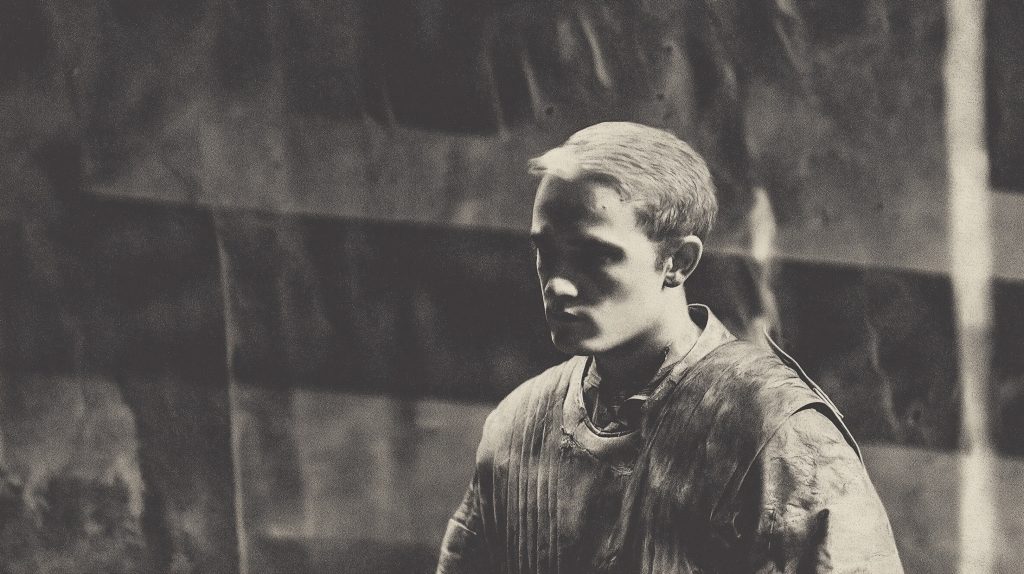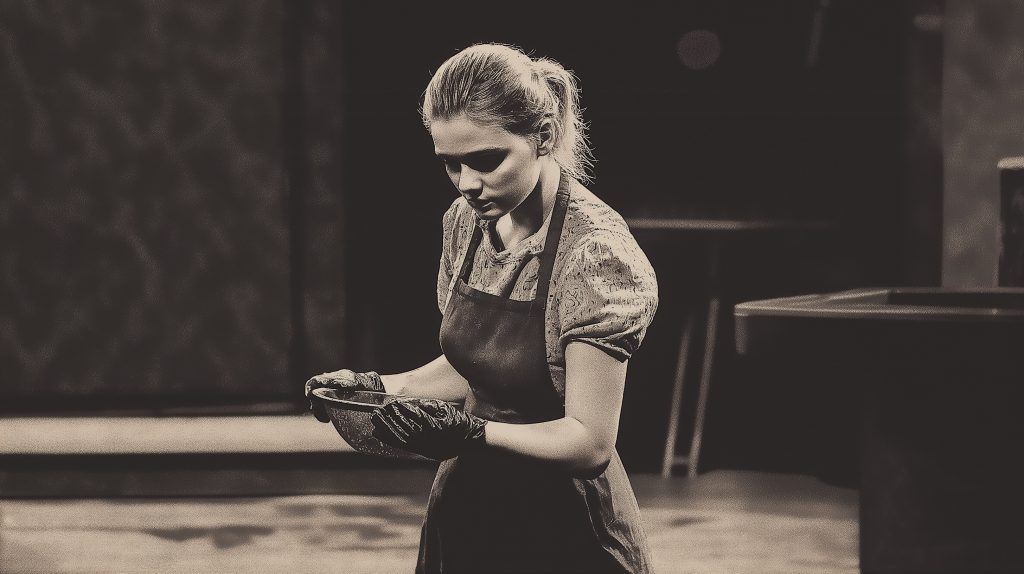Twenty years after her star-making debut, Bella Morgan revisits the role that made her – and the man who tried to stop her.
Twenty years ago, Bella Morgan walked onto a small-town stage in the iconic role of Gimlet. She walked off as a star.
Now, as she prepares to reprise the role that launched her into theatrical legend, we sit across from each other in a quiet corner of the Guardian City Velvet Theatre, where rehearsals for her long-awaited return are underway.
There’s an ease about her, a knowing self-possession in the way she sips her black coffee. But as soon as we begin to talk about that fateful first performance, a flicker of something else crosses her face. Amusement? Irony? Maybe even the faintest trace of the ghost she once had to exorcise.
Because it is quite a story. One of rivalry and pre-destination.
“Norman did me a favour,” she says after a pause. “He would hate to hear that, of course.”
Norman’s conquest
Norman Lyons. A name that once commanded a particular kind of reverence in amateur dramatics circles. For decades, he was the leading man of the Kent March Players, the undisputed star of their annual productions. Until, in the winter of 1855 OT, the group’s progressive new director made a bold decision: Gimlet, their most ambitious project yet, would be played by a woman. Not just any woman – a 24-year-old upstart fresh out of drama school.
Bella Morgan.
Norman, cast as Ponolopy, Gimlet’s uncle, was polite to her face. Supportive, even. But backstage, a different script was unfolding.

“I wasn’t naïve,” Bella says, shrugging. “I knew it was controversial. A woman playing Gimlet? In a small fairly conservative town? But what I didn’t quite expect was how… insidious the doubt would become.”
She speaks carefully, without bitterness. She describes how Norman, the veteran, the seasoned star, the man she had once looked up to, would take her aside under the guise of mentorship. His words were never overtly cruel – just precise, placed like well-timed cuts in an already fragile confidence.
A moment of doubt
“‘It’s a big role,’ he’d say. ‘Huge. It’ll consume you if you’re not careful.’ Or, ‘It’s such a masculine energy, you know? Not sure how that’ll read on stage, but you’ll find a way.’”
Norman understood what he was doing. Gimlet is a serving steward to the king tormented by self-doubt. To play him well, you must have a grip on your own. Becoming Gimlet meant that Bella had to take on her doubts, which added to her own to precipitate a crisis.
By the time opening night arrived, Bella’s head was spinning. The audience was packed, a blend of regular theatregoers and sceptics curious to see if the young woman could pull it off. And then came the review.
A close friend of Norman’s at the local paper published a scathing critique. “A catastrophe,” Bella recalls it saying. “The grand experiment of a female Gimlet falls flat on its face.”
“I was devastated,” she admits. “I barely slept. I remember sitting in the dressing room before the second performance and thinking, ‘I can’t do this.’”
Something clicked
But something happened that night. A decision. “I was too tired to second-guess myself anymore. I thought, ‘If they’re going to kill me in print me, I might as well go down swinging.’”
She laughs at the memory, shaking her head. “And then… I stepped onto that stage, and I found something I didn’t know I had – freedom. I was not encumbered by the baggage of the part, of Norman, of being a woman…”

What she found was an intensity that electrified the audience. The hesitancy of the night before was gone, replaced by a raw, visceral performance that left people stunned. Word spread.
The run, originally set for a modest two weeks, was extended. By the time it ended, Bella Morgan was no longer a local curiosity. She was a name. And soon, she was a name far beyond the Kent Marches.
“It’s funny,” she says. “Norman spent all that time trying to undermine me, and in doing so, he forced me to dig deeper than I ever would have. He made me a better Gimlet. He made me a better actor.”
A bright future
Norman never played another leading role after that. Whether that was by choice or consequence remains a matter of local theatre folklore. When asked if she ever spoke to him about it, Bella shakes her head. “No. There was nothing to say. I think he knew.”
- A phone, a play, and the enduring mystery of a missing man
- The egg and spoon showdown that shook Guardian City
- Eliot Vance and the candlelight crusade for an unsung cause
What happened to Norman Lyons? I ask. Bella hesitates, then offers a small, knowing smile. “I think he’s still around. Last I heard, he was directing panto.”
She doesn’t gloat. There’s no malice in it. Just the strange, poetic symmetry of fate.
And now, two decades later, she’s coming back to where it all started. A bigger stage, yes. A capital city audience, yes. But the same role. The same ghosts.
“Are you nervous?” I ask.
She grins. “Terrified.”
And then, a beat later: “But that’s the best part, isn’t it? Got me where I am today.”

